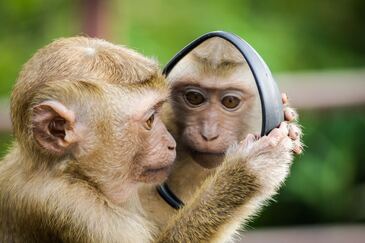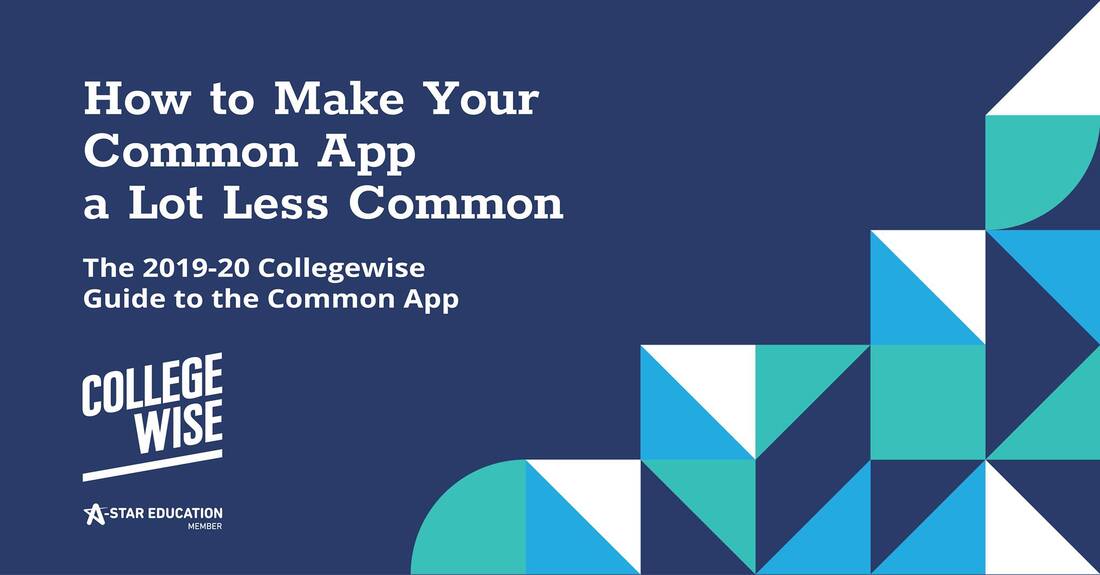 Photo by Andre Mouton on Unsplash Photo by Andre Mouton on Unsplash I had a meeting with one of my seniors on Monday. All of my Class of 2020 students are deep in the thick of their college applications right now, so our meetings mostly consist of going through last week’s to-do list, crossing things off, and then creating our new to-do list. As we talked through her most recent list, my student admitted that she hadn’t gotten very much of it done. This is not an enormous problem as it’s only the end of September and the deadline isn’t for another two months. But, we already know that November is going to be a really intense month for her because of school, Thanksgiving, and rehearsals and performances for the school play. So while we’re not feeling the crunch of deadlines right now, we can already envision what that pressure is going to feel like. And my favorite thing to do when I feel that imaginary stress is to give a gift to my future self. I’m writing this blog post on an airplane while flying home from Denver. I’d rather be eating snacks and watching a movie on my laptop, but I already know that there are dozens of essays waiting to be edited and late meetings every night this week. So I have to decide: do I relish the lack of WiFi access on Spirit Airlines and treat myself right now, or do I try to cross a less urgent but important item off my to-do list? Right now, I’m choosing to be nice to future Colleen, and make her Thursday and Friday a little less hectic. But the lesson is not to always prioritize work over leisure. Every day, I walk for at least an hour. Some days, that means pulling myself out of a good work flow, stepping away from my computer, and letting the emails pile up in my inbox while I walk my dog. Future Colleen might feel a little more stress when she gets back to her desk, but I know future future Colleen is going to be glad that she took a walk, got some sun and some air, and breathed. Sometimes the gift is getting your homework done, and sometimes the gift is taking a beat. This calibration of what to do now and what to do later is always a work in progress – I’m better at it some days than others. But there’s not a single phase of my life that this principle hasn’t made better. Applying to college as a high school senior? Give a gift to your future self and write those essays weeks (or even months!) before the deadline. Work project that technically isn’t due until the end of the week? Write it on the plane instead of rewatching Friends one more time. I’ve long been an advocate – if not a practitioner – of doing things early, and no one appreciates this more than my future self.
0 Comments
 Photo by Steve Johnson on Unsplash Photo by Steve Johnson on Unsplash I just finished watching the 15th season of Top Chef (the one that takes place in Colorado – no spoilers for Kentucky, please!). In episode six, Joe Sasto, also known as “Mustache Joe,” struggles to find his footing in the German food challenge and winds up in the bottom three for his pretzel sausage in cheese sauce. At Judges Table, renowned pastry chef Keegan Gerhard gives Joe this feedback: “You have a bag of techniques and tools bigger than you can lift,” meaning that you can have all the tricks in the world, but if you don’t implement them properly, they’ll only work against you. The promising but undisciplined rookie is a trope that comes up in a lot of Top Chef seasons. And a lot of premium cable legal dramas. It’s also the plot of basically all the Karate Kid movies. And it’s something I frequently think about when my students start writing their supplemental essays. One of the most common college essay prompts is “Why do you want to go to this university?” There are a lot of reasons why colleges ask this question, but, fundamentally, they want to know that you’ve given this question some thought and that you’re genuinely interested in their school. Most of the students I work with really struggle to answer this question successfully, even for a school that they’re sincerely enthusiastic about. The most common mistake I see are essays that spend too much time talking about the school and all its wonderful qualities, and not enough time talking about yourself and why those wonderful qualities are important to you. The other mistake I see is the laundry list. Just like Joe Sasto and his “bag of techniques,” a lot of students think they need to throw everything they can think of into their essay, as though the sheer volume of details will serve as proof of how much they want to go to this school. But the problem with the laundry list is that you can’t really do justice to that many examples in a 300 or 500 or even 800-word essay. And the quantity starts to work against you, with each “And also…” diminishing the impact of your enthusiasm. What works better – for Joe Sasto and the Why College? essay – is to edit. Dip into your bag of techniques and choose two or three that you can skillfully execute. Think about all the things you love about a college and choose two or three that you can thoughtfully articulate, explaining both what you like about a school, and more importantly, why you like those things. Take note from Coco Chanel, who said it best: “Before you leave the house, look in the mirror and take one thing off.” So before you outline your essay - or conceive your Quickfire-winning dish - look at your laundry list and choose the best ones. Yesterday, Collegewise published our annual Guide to the Common Application. This is one of my favorite resources at Collegewise, the one that I share with my own students and basically every kid who emails me between July and December. It’s full of thoughtful, line-by-line suggestions for almost every question on the Common App. And it’s great for students at any stage of the process, from creating your account to nailing your activity descriptions.
But I’m particularly proud to share this year’s edition because I got to help write it. And to celebrate, I want to share a few things that will help take your application from common to extraordinary. 1. Be Yourself A lot of students start to feel anxiety at having to boil themselves down to the six sections of the Common App. Every individual question becomes loaded with meaning, and I watch kids twist themselves into knots over issues they’ve never thought twice about before. I always tell them the same thing: just answer however feels truthful and accurate for you. Whether it’s about your gender identity or ethnicity or religion, I can’t promise that no schools will judge you based on your answer. But I can promise you that the right schools will be excited about you exactly as you are. 2. Be Careful The beginning of the Common App feels pretty straightforward; you’re plugging in your name, your address, your phone number. That can feel like no big deal and students start to go on autopilot. But I’ve seen kids forget to capitalize their last name because they’re used to autocorrect fixing everything on their phone. Or accidentally writing in their old phone number even though they moved four years ago. Some of those things can be changed, but some of them are locked in once you create your application. And that’s the easy stuff. Things like the FERPA release authorization are more complicated and require close attention. The good news is, you can work through the Common App gradually, saving and coming back to tackle new sections when you’re ready. 3. Be Creative This is especially important in the Activities section. I ask my students to imagine that they are an admissions officer, that they’re the one reading application after application after application for months at a time. I ask them to think about reading dozens of resumes a day with activity descriptions written like they went through a corporate-speak generator. And then I ask them to imagine what it would be like if one of those descriptions said, “I’ve played soccer since I was 6. Weekend tournaments are my favorite part, even with the multiple hexagon-shaped bruises I’ve received.” The admissions officer would probably laugh – or at least smile – and remember what teenagers sound like. So don’t be afraid to show your personality, your sense of humor, your quirks. Think of your Common App as the beginning of a conversation.  Photo by Hillie Chan on Unsplash Photo by Hillie Chan on Unsplash This week, New York Times opinion columnist, Frank Bruni, shared his latest thoughts on the college application process in his piece, “When Did College Turn So Cruel.” He mostly discusses a new book by Paul Tough, The Years that Matter Most: How College Makes or Breaks Us. I didn’t agree with everything Bruni said – as is the prerogative of opinion writers, he paints with a broad brush - but he did pay some important attention to the particular issues facing underserved and low-income students. And he shared one quotation from Tough that has stuck with me all day: A generation ago, earning a four-year college degree was rightly seen as a way for individuals to move up in the world. Today, for many young Americans, a B.A. is simply an insurance policy against moving down. That dark fact has changed the way many of us think about college. It means that when young people make their decisions today about college, they often are motivated less by hope and more by fear. I keep thinking about what it means to be motivated by hope rather than motivated by fear. To me, it means deciding to take AP Spanish because you’re excited to get closer to fluency and you want to take a crack at Don Quixote in its original language, not taking it because you’re afraid colleges won’t admit you without that extra point on your GPA. It means taking physics at a community college over the summer because you are obsessed with Cosmos (the Carl Sagan version, of course), not because you heard the physics teacher at your school is really hard and you don’t want to get a bad grade. It means taking risks because the experience is the whole point, not playing it safe because you’re afraid you might fail. This is easier said than done – I’m twice as old as my students and I still haven’t nailed this yet. But part of the reason high school and college feel so cruel is because we keep hearing the same scary stories of hardworking students who still don’t get admitted to the most selective colleges, or students who do get admitted to those highly selective schools, but can’t afford to go. Your four years of college are important, but they do not matter the most. A college education can set you up for greater financial and professional success, but it does not make or break you. The reason I feel so confident about that is because of this series. When I Was 17 is studded with example after example of people who found success in lots of different ways, with and without college, right away or down the line. There are people who followed a traditional education path, people who started at community college, people who failed and then started over somewhere new. And every single interview ends with a feeling of arrival, not at the end of the story but at a place the subject feels proud of. By keeping those stories in mind, it’s a lot easier to feel hope instead of fear. |
What is the When I Was 17 Project?When I Was 17 is a blog series dedicated to collecting the varied stories of people's career paths, what they envisioned themselves doing when they were teenagers and how that evolved over the course of their lives. I started this project with the goal of illustrating that it's okay not to know exactly what you want to do when you're 17; many successful people didn't, and these are a few of their stories.
Archives
October 2020
|
